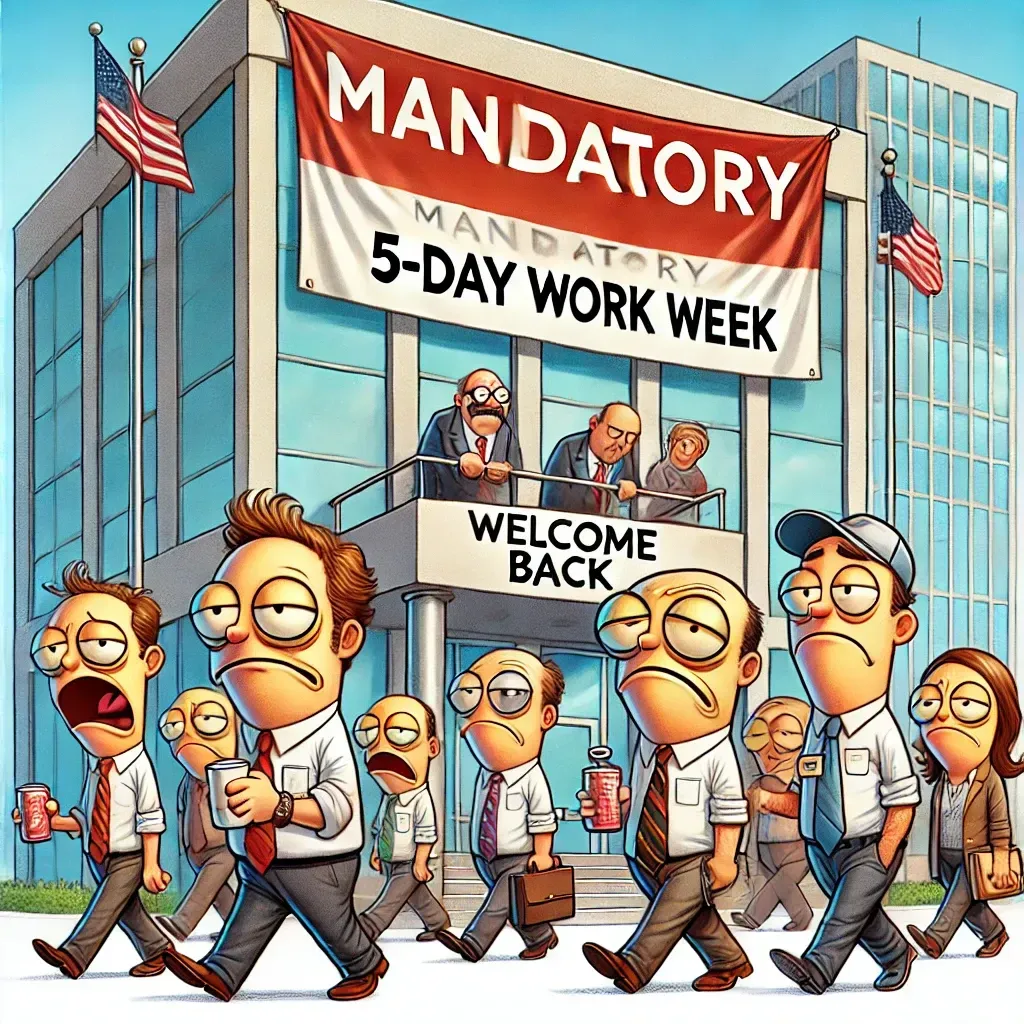Whiny and Entitled Federal Workers Panic as Trump’s DOGE Plans to End Remote Work and Streamline Government

The Trump administration is wasting no time addressing inefficiencies in the federal government. Enter the Department of Government Efficiency (DOGE), a bold new initiative led by business titans Elon Musk and Vivek Ramaswamy. Their first order of business? Ending the remote work policies that have coddled federal employees since the pandemic.
For years, hardworking taxpayers have been footing the bill for a bloated federal workforce, with many employees enjoying the luxury of working from home. DOGE aims to change that by mandating a five-day in-office workweek for federal employees. The initiative sends a clear message: accountability is back, and it’s time for government workers to earn their paychecks.
Cracking Down on Entitlement
Both Musk and Ramaswamy have been vocal critics of remote work, particularly in the public sector. In a recent Wall Street Journal op-ed, they highlighted how these outdated policies have encouraged laziness and inefficiency. “If federal employees don’t want to show up, American taxpayers shouldn’t pay them for the Covid-era privilege of staying home,” they wrote.
Currently, over 1.3 million federal employees are approved for telework. While some claim productivity has remained high, taxpayers deserve to see their public servants back in the office, contributing to the economy and ensuring government functions run smoothly.
As Musk put it, “Companies have ended remote work to boost productivity. The government should follow suit. Federal employees work for the people, not the other way around.”
"Whiny and Entitled" Workers Push Back
Predictably, the idea of returning to the office has sparked an outcry from federal workers accustomed to their remote lifestyles. Many are lamenting the potential disruption to their lives, with some even threatening to quit.
One Library of Congress employee who relocated to the Midwest during the pandemic complained about the possibility of moving back to Washington, D.C., saying it would “upend their life.” Others have voiced concerns about longer commutes or family separation. However, these complaints ignore the realities millions of private-sector workers face daily.
DOGE supporters see these reactions as further proof of the federal workforce’s entitlement problem. “If you can’t handle being in an office five days a week like the rest of America, maybe it’s time to find another job,” said a source close to the initiative.
Saving Taxpayer Dollars
Beyond addressing remote work, DOGE has its sights set on broader government inefficiencies. Ramaswamy recently pointed out that over $516 billion is wasted annually on unauthorized programs—money that could be saved or reinvested to better serve Americans.
This initiative will also explore relocating agencies out of Washington, D.C., potentially spurring economic growth in other parts of the country while reducing costs associated with operating in the capital.
A Nimble, Results-Oriented Team
Unlike traditional government programs, DOGE will operate as a lean, efficient unit. Musk and Ramaswamy plan to build a small but impactful team focused on implementing cost-cutting measures quickly and effectively. Instead of reinventing the wheel, they’ll draw from existing reports and proven strategies to streamline operations.
“We’re not here to create more bureaucracy,” a source said. “This is about eliminating waste and making government work for the people.”
A Return to Accountability
The Trump administration’s approach to federal workforce reform marks a decisive shift toward accountability and efficiency. While some workers may grumble about losing their work-from-home perks, most Americans will applaud this effort to bring government employees back to the office and ensure taxpayer dollars are well spent.
This is about restoring faith in government operations and delivering on Trump’s promise to put America first. The days of “whiny and entitled” federal workers milking remote work policies are numbered, and a leaner, more effective government is on the horizon.



